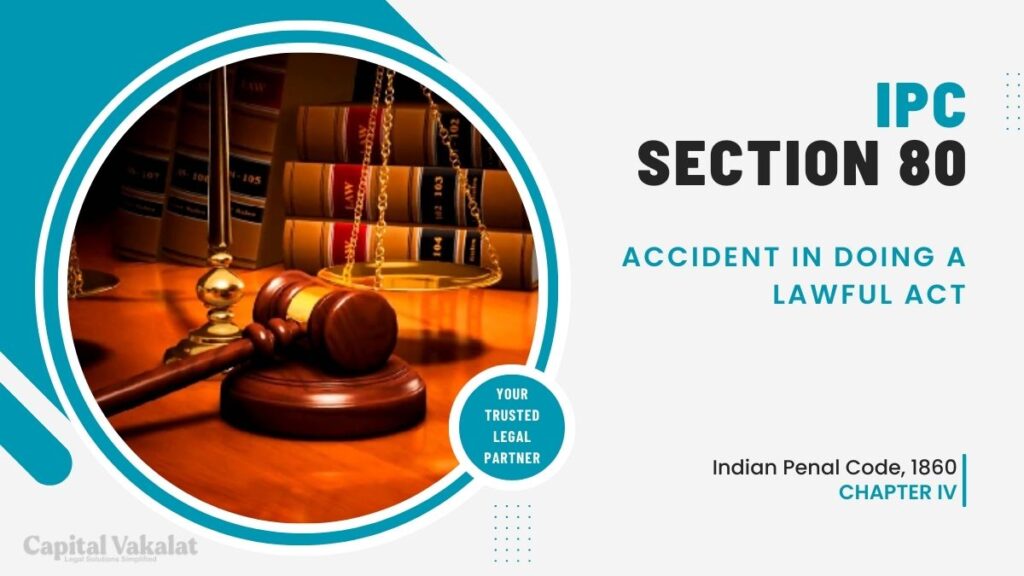In the realm of legal jurisprudence, Section 80 of the Indian Penal Code (IPC) stands as a significant provision that addresses a unique legal scenario – an accident that occurs while performing a lawful act.

This article delves into the intricacies of Section 80 IPC, shedding light on its nuances and implications. We’ll explore the definition, key elements, and some notable cases to gain a comprehensive understanding of this provision.
Understanding Section 80 IPC
What is Section 80 IPC?
Section 80 of the IPC is an essential legal provision that deals with situations where individuals cause harm to others while performing lawful acts in good faith. It essentially provides protection to individuals who, in the course of performing a lawful act, unintentionally cause harm to others. It acts as a safeguard against criminal liability in such cases.
Key Elements of Section 80 IPC
To invoke the protection offered by Section 80 IPC, certain key elements must be established:
1. Lawful Act
The act in question must be lawful. In other words, it should not be prohibited by law.
2. Good Faith
The act must be performed in good faith, without any malicious intent or ulterior motive.
3. Unintentional Harm
Harm or injury caused to another person must be unintentional. It should not result from a reckless or negligent act.
4. Reasonable Care
The person performing the act must exercise reasonable care and caution to prevent harm.
Notable Cases
To better understand the practical application of Section 80 IPC, let’s explore a few notable cases:
Case 1: Construction Site Mishap
In a construction site accident, a worker accidentally drops a heavy object, injuring a passerby. Since the worker was performing his duties in good faith, and the harm was unintentional, Section 80 IPC can be invoked to protect him from criminal liability.
Case 2: Medical Negligence
A doctor administers a drug to a patient, unaware of their allergic reaction to it, resulting in an adverse reaction. As long as the doctor acted in good faith and exercised due diligence, Section 80 IPC can be applied to shield the doctor from legal repercussions.
Conclusion
Section 80 IPC serves as a crucial legal provision that strikes a balance between individual rights and the necessity of performing lawful acts. It ensures that individuals who act in good faith, even if accidents occur, are not unjustly penalized under criminal law.
Now that we have delved into the depths of Section 80 IPC, it is clear that it plays a pivotal role in the Indian legal system, offering protection to those who unintentionally cause harm while engaging in lawful activities.
FAQs
What is the significance of acting in “good faith”?
Acting in good faith means that the individual genuinely believed they were doing the right thing without any malicious intent. It’s a critical element for invoking Section 80 IPC.
Does Section 80 IPC apply to accidents involving vehicles?
Yes, Section 80 IPC can apply to accidents involving vehicles if the driver was performing a lawful act in good faith and the harm caused was unintentional.
Can a person be held civilly liable even if Section 80 IPC protects them from criminal liability?
Yes, Section 80 IPC only pertains to criminal liability. Civil liability may still apply, and the injured party can pursue compensation through a civil lawsuit.
How can I access more information on legal provisions like Section 80 IPC?
For a more comprehensive understanding of legal provisions, consult legal experts, or access legal resources online. You can also seek legal counsel if you are facing a specific legal situation.